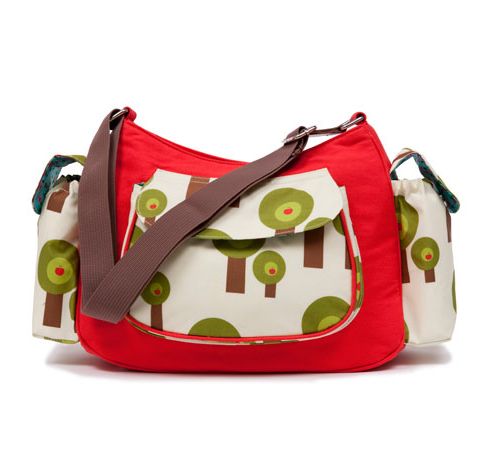Rules to eat by

There is a whole lot of advice on what pregnant […]
There is a whole lot of advice on what pregnant women should eat and not eat—most of which sounds pretty straightforward on paper. But when it comes to real life, all the suggestions can be tough to remember—let alone stick to—when you’re cruising the aisles of your local supermarket.
Instead of giving you a long-winded rundown of do’s and don’ts, we asked holistic nutritionist Candice Howarth, an expert on maternal nutrition in San Francisco, to share five easy ways a mom-to-be can improve her diet to enhance her health and the health of her budding babe.
“So often when people think of making a switch to healthy eating, they picture an entire diet overhaul, which is a great way to set yourself up for failure,” Howarth explains. “It’s so much more beneficial to think of small, simple changes you can add into your daily or weekly routine that you will enjoy and stick with. Gradually adding more of these small changes is much more realistic and will have lasting results and lifestyle changes.”

Your mother wasn’t kidding when she called breakfast the most important meal. How you start your morning can make or break how you feel for the rest of the day. Reaching for protein will not only boost your energy level but also sustain it over time. This is precisely what your body needs to refuel after a long night and to fight off the dreaded pregnancy fatigue.
Another benefit of munching on protein: You’ll feel full for longer, which lessens the risk of unhealthy snacking and overeating.
By incorporating some fruits and veggies into your first meal of the day, you’ll be upping your intake of valuable vitamins and minerals. This means you’ll get more good-for-you nutrients in the long run than you would putting off produce until lunch or dinner.
“Eggs with veggies is an obvious option, but [you can] also try berries with whole milk yogurt and hemp seeds,” suggests Howarth, adding that the latter is great when you’re hungry but in a hurry. “You can have [it] on the go or keep [it] in your office fridge.”
2) Choose soup or salad.
If you generally stick to one-course meals at home, adding a predinner bowl of soup or
a side salad can make an enormous difference.
According to the National Institutes of Health (NIH), pregnant women should be downing four to five servings of vegetables a day, and two of those should be leafy greens. But, as Howarth points out, squeezing all those servings into your daily meals doesn’t have to be complicated. She advises mamas-to-be to have soup or salad with lunch or dinner most days of the week.
“This is an excellent way to sneak more produce and a wide variety of nutrients into your meals,” she explains. “Minestrone soup or a simple mixed green salad is an easy option you can find at most restaurants or have at home.”
Bonus: Prep work for soups and salads is typically minimal, and you can make a big batch that will last you a few days, saving you time later in the week.
3) Eat more fish.
It might seem like the expectant crowd hears conflicting advice about consuming fish during pregnancy, but don’t bypass the seafood counter because of your fear of mercury, Howarth cautions. “Instead of avoiding fish altogether, make smarter choices when choosing fish.”
Fish are loaded with healthy omega-3 fatty acids, as well as vitamins A and D—all of which are essential for babies’ developing brains. “Sardines, anchovy and wild-caught salmon are some of the best foods for pregnancy,” Howarth says. Stick to smaller, non-predatory fish to steer clear of high mercury swimmers, like tuna and swordfish, which are best avoided during bumphood.
Aim for 12 ounces of seafood a week (that’s about the size of two average meals) to meet the Food and Drug Administration’s (FDA) recommendations for pregnant women.
4) Take a prenatal vitamin.
Hopefully you were swallowing a one-a- day prior to finding out you were eating for two. (Most doctors recommend prenatal vitamins for any woman of childbearing age.) If not, the sooner you start, the better.
“While no amount of supplementation can replace a healthy diet, pregnancy is an important time to make sure your body has everything it needs to build you the best baby,” shares Howarth.
If you’re not meeting your daily quota for key nutrients, it could hurt both you and your baby-on-the-way in the long run. “When a mother’s diet is lacking in nutrients, it is the mother who goes without. The fetus will pull what it needs from mom, and she can be left feeling quite depleted and exhausted during those 40 weeks.” So, make taking your prenatal vitamin a habit to top-up your reserves and ensure neither you nor baby goes without.
5) Root for ginger.
When morning (noon and night) sickness hits hard, ginger can be a pregnant woman’s lifesaver. But it has more benefits than easing the quease, notes Howarth. “Ginger is anti-inflammatory, helpful with digestion and wonderful for your immune system.”
Clearly there are loads of good reasons to add more ginger to your diet—and just as many ways to do it. If you’re not a fan of fresh ginger (or cooking), the beneficial root comes in other easy-to-swallow forms. Stow ginger mints in your purse in case of sudden nausea, and keep ginger tea at home and at your desk for quick relief.
The time surrounding pregnancy can be wonderfully exciting—but also a bit overwhelming. By making a few simple adjustments to your diet, you can stress a little less about the numbers and lists and focus more on well-rounded nutrition.
“Think of this time as a chance to nourish your body and set the stage for a healthy pregnancy,” Howarth encourages. “Your body and baby will thank you.”







